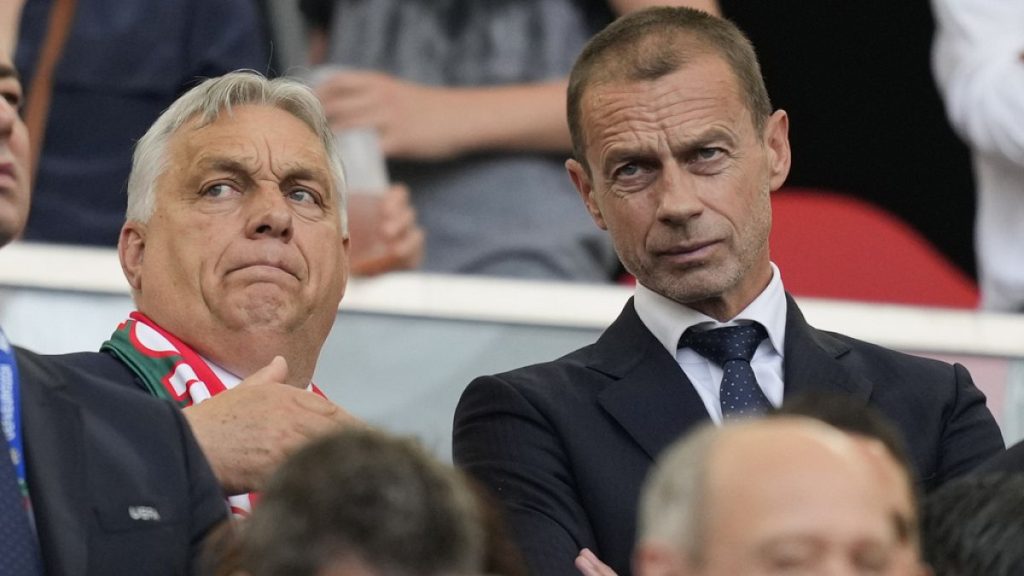Hungarian Prime Minister Viktor Orban visited Berlin ahead of Hungary’s upcoming EU Council presidency, meeting with German Chancellor Olaf Scholz but receiving a frosty reception. Despite sitting next to Scholz at a football match, political discussions were off the agenda. This is the second visit in a row where Orban was not received with military honors or a press conference, a departure from traditional state visits. Orban is likely to focus on issues such as other countries’ EU accession, particularly in the Western Balkans, where he has close ties with leaders like Serbia’s Aleksandar Vucic.
Orban’s visit comes at a time when tensions between Hungary and the EU are high due to Hungary’s migration policies and anti-Ukraine stance. Despite the strained relationship, Scholz made time to meet with Orban during a busy day of meetings and events. Orban will also be visiting Italy to meet with leader Giorgia Meloni as decisions on top EU jobs are made at the end of the month. An important task for the Hungarian leader will be gaining the support of at least 15 out of 27 EU leaders for candidates for the next five years.
The EU Council presidency may not hold much power, but it determines the agenda in Brussels each week, prioritizing certain topics over others. Orban’s government is likely to focus on issues such as EU accession for countries like Serbia, Moldova, and Ukraine. Orban has expressed interest in integrating the Western Balkan states, partly due to his friendship with Serbia and his alignment with Russian leader Vladimir Putin. These relationships could further complicate Hungary’s standing within the EU.
Orban’s visit to Germany and upcoming meetings in Italy highlight the importance of building alliances within the EU as key decisions are made regarding top EU positions. Despite the lack of fanfare during his visit, Orban’s discussions with Scholz and other EU leaders are crucial for Hungary’s standing within the EU. With tensions over migration policies and other issues, Orban will need to navigate carefully to garner support for his agenda during Hungary’s EU Council presidency.
As discussions continue on the future direction of the EU and the appointment of top EU officials, Orban’s meetings with leaders like Scholz and Meloni will play a significant role in shaping Hungary’s position within the European Union. The Hungarian Prime Minister’s focus on issues such as EU accession for neighboring countries and integration in the Western Balkans reflects his strategic interests in the region. Despite the challenges and tensions within the EU, Orban’s diplomatic efforts and alliances will be crucial in navigating Hungary’s role in the European Union.













